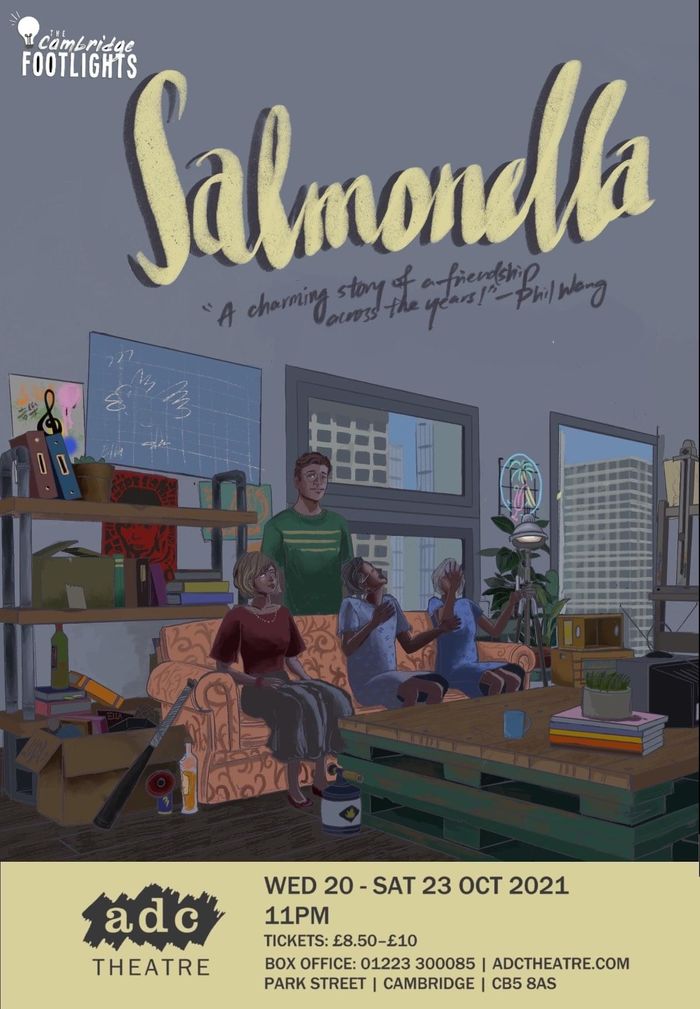From Score to Stage: collision of music and theatre in Ghost Quartet
Director Lily Blundell previews this week’s Corpus mainshow, Dave Malloy’s Ghost Quartet

Ghost Quartet is a musical. Also it’s not.
That’s what I tried to get across to the ADC selection panel back in May. When you pitch a show you have to tick a box to show what category your show falls into – play, comedy, cabaret, musical, etc. I instinctively clicked the “musical” box and scrolled to the next question.
But then I stopped, and for a second I thought about what the term “musical” actually means. Is it theatre with music in? That would make most of Shakespeare’s plays musicals, and I think it would take more than one Varsity article to convince the Royal Shakespeare Company of that. Is it then a piece of theatre that has set “numbers” or songs in it, mixed with dialogue? That seems closer – Sondheim, Lloyd Webber, they all fit nicely into that definition. But what about modern masterpieces like Hadestown or Natasha, Pierre & the Great Comet of 1812, with music running operatically throughout, not stopping for hours at a time?

And then there’s Ghost Quartet. An hour and fifteen minutes of songs, one after the other, each one very separate from the last but still falling in such quick succession you loose all track of how long you’ve been listening. What’s more, each one is announced by the cast like a track on a double-sided vinyl – “Side 1, Track 4…”. Everything is laid bare – there’s no attempt to hide instruments, microphones, speakers, no need to convince the audience that the music of the show is somehow magically appearing within the theatrical world being created.
“Very unlike any musical I’ve ever seen”
So does that make it a concert? In some ways, maybe, but we haven’t lost that essential dramatism and theatricality of all the musicals I mentioned above – set, costume, lights, character, story. Story is what makes theatre, theatre. Ghost Quartet certainly has a story – in fact it has many, full of dozens of characters, spanning across centuries and continents. It’s confusing, non-chronological and non-confirming, but it is a story.
So back to the tick-box form – “musical”. I wish there was a box instead labelled “song-cycle”; ask any classical music fan what a song cycle is, and they’ll point you towards Schubert and his expansive collections of songs, each an individual and unique piece of music, but all collected by theme, mood, or character and bound together in a book of scores – a “song-cycle”. These collections could be as vague as the theme “nature”, or as specific as his most famous collection, Winterreise, which tells the story of a wandering protagonist but lacking concrete plot or action.
And that’s what Ghost Quartet feels like to me. A collection of songs, all sharing the same world but very unlike any musical I’ve ever seen. The level of music, both in sheer volume and in complexity, is staggering – the cast of four alone play 16 instruments between them, whilst singing vocal parts few other singers could do. Each rehearsal feels like a year 7 music class, full of noise and play, people hitting and shaking percussion, banging drums, plucking strings and pressing keys. And it’s wonderful.
I don’t think it really matters what Ghost Quartet is. Musical, song-cycle, whatever you want to call it. The important thing is its some songs, and a story, with ghosts and whiskey and so much enjoyment in making lots of noise. So come and see it, and maybe you’ll get to shake a tambourine or two yourself.
 Interviews / You don’t need to peak at Cambridge, says Robin Harding31 December 2025
Interviews / You don’t need to peak at Cambridge, says Robin Harding31 December 2025 News / Cambridge academics stand out in King’s 2026 Honours List2 January 2026
News / Cambridge academics stand out in King’s 2026 Honours List2 January 2026 Comment / What happened to men at Cambridge?31 December 2025
Comment / What happened to men at Cambridge?31 December 2025 News / Unions protest handling of redundancies at Epidemiology Unit30 December 2025
News / Unions protest handling of redundancies at Epidemiology Unit30 December 2025 News / Varsity’s biggest stories of 202531 December 2025
News / Varsity’s biggest stories of 202531 December 2025









